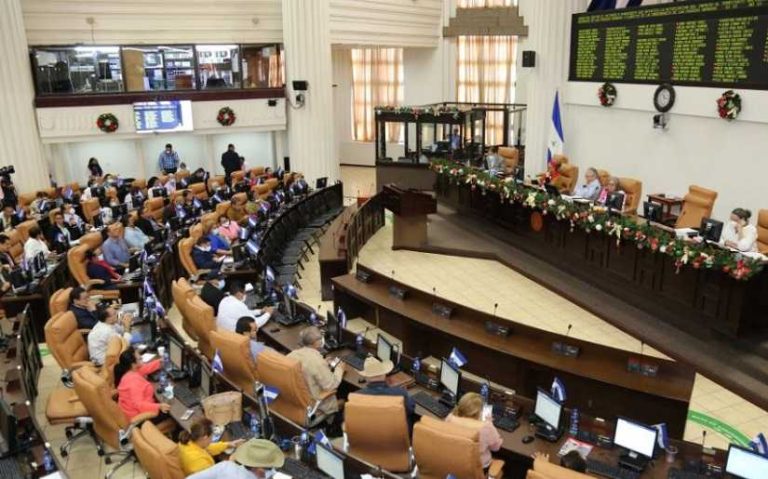5 de mayo 2022

Children of Exile: The Births “Sowing Hope” in the Camp of Nicaraguan Farmers

PUBLICIDAD 1M
PUBLICIDAD 4D
PUBLICIDAD 5D
The total number of non-governmental organizations the regime has shuttered since 2018 rises to 193. In 2022 alone, they’ve now closed 119

View of the plenary of the National Assembly. Photo: Taken from El 19 Digital
In a continuation of their assault against civil society’s organizations, the regime of Daniel Ortega and Rosario Murillo has sent a new list of 25 NGOs to be closed. The latest list was submitted on May 3 to the Sandinista-dominated National Assembly, where legislators are all but certain to rubber stamp the proposed cancelations of these organizations’ legal status. With these closures, the number of NGOs shuttered by the regime in the first five months of 2022 has now reached 119, according to a Confidencial analysis.
The cancellation decree is expected to be approved without discussion on May 5. Among the 25 NGOs declared illegal, is the Association for the Central American Historical Institute, which functioned as a “center for journalistic investigation, reflection, analysis, communication and social action, with a Christian focus.” The Institute was founded by the Jesuit “Company of Jesus”, which also directs the Central American University (UCA). The center created and distributed the monthly “Envio” magazine, which has circulated nationally and internationally for over 30 years. They also held workshops focusing on the country’s reality.
Another of the organizations affected by this new request from the Interior Ministry is the Nicaraguan Foundation for Sustainable Development, led by renowned scientist Jaime Incer Barquero. The environmental organization pioneered the conservation of natural resources in Nicaragua and collaborated with other NGOs like the Humboldt Center – cancelled in March of 2022 – in warning about the environmental risks posed by the failed project for an Inter-oceanic canal that the Ortega regime attempted to push through.
Other organizations named for closure are:
The regime has already canceled the legal status of 168 NGOs since 2018, and the latest expected closures will bring the total to 193, according to an analysis done by Confidencial.
The Interior Ministry has accused all of the organizations of violating three laws: The Law for Non-Profit Organizations; The Law of Legislative Power; and The Law against Money Laundering, Financing Terrorism and Financing the Proliferation of Weapons of Mass Destruction.
In addition, the Interior Ministry alleges that the organizations failed to report their financial status with the required details, or failed to register as foreign agents. Nonetheless, on multiple occasions the heads of the shuttered NGOs have asserted that the Ministry itself set up obstacles when they attempted to comply with the required paperwork. In some cases, the organizations stated that the Ministry simply refused to receive their documents, despite the fact that they attempted to submit them several times.
Among the canceled NGOs are dozens that carried out projects in education; oversaw medical programs like Operacion Sonrisa [“Operation Smile”, which brought surgeons to fix cleft palates]; organized women’s and environmental projects; promoted and defended human rights; worked with the indigenous peoples; offered programs for children and adolescents; or focused on topics of social development, democracy and culture.
This article was originally published in Spanish in Confidencial and translated by Havana Times
Archivado como:
PUBLICIDAD 3M
Confidencial es un diario digital nicaragüense, de formato multimedia, fundado por Carlos F. Chamorro en junio de 1996. Inició como un semanario impreso y hoy es un medio de referencia regional con información, análisis, entrevistas, perfiles, reportajes e investigaciones sobre Nicaragua, informando desde el exilio por la persecución política de la dictadura de Daniel Ortega y Rosario Murillo.
PUBLICIDAD 3D